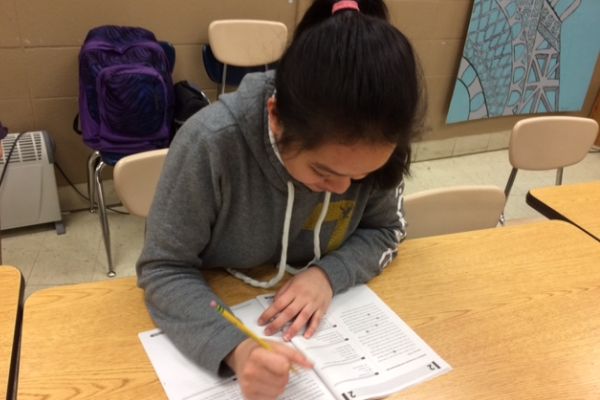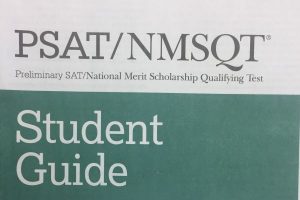Central High School Students Take Practice ACT to Improve Scores

STUDENTS PRACTICE TAKING THE ACT — Sophomore Meg Sabanal works diligently to finish her ACT practice test.
January 13, 2017
Students at Central High School were welcomed back from their winter break with a surprise. During the morning hours of Jan. 10 and 11, freshmen, sophomores, and juniors were required to take an ACT practice test.
“The number one comment juniors make after the take the ACT in April is that they didn’t finish one or more tests,” explained senior guidance counselor Lindsey Ruggles, who helped organize the practice test. “Time management is a huge factor in successfully navigating the ACT; our hope is that the practice ACT– because it is the exact same number of questions and the exact same time constraints as the real ACT– will expose students to the pacing of the tests, which will hopefully encourage them to then prepare for this factor before they take the real ACT in April.”
Teachers and administrators are always trying to help their students improve their ACT scores. The class of 2016 had an average ACT score of 18.2, results have generally increased over the past few years at Central.
“Students that take the test seriously tend to do better. I have many seniors that retake the test and do increasingly better on the ACT. They seem to take it more seriously once they have started applying for college and find that they need a higher ACT score for the college of their choice or would like to take college level courses while they are still in high school,” said Bridge Mathematics teacher Terrell Stevens, who also helped organize the practice test.
While students may think retaking the test several times is redundant, more likely than not, he or she will get better scores each additional time the test is taken. Many scholarships have a threshold of receiving a 21 on the ACT. Therefore, if students have not achieved that high of a score yet, more practice is needed.
“Because we’ve only given the practice ACT one year, there’s not really enough data yet to determine if students did better on the real test as a direct result; however, research shows that students’ scores increased 2-3 points the second time they take the ACT. If students take the practice test seriously– which is hit or miss– we hope that they’ll see that increase between the practice test and the first time they take the real ACT,” stated Ruggles.
Furthermore, students can find dozens of practice tests online to prepare themselves for the ACT. In the end, the score will determine what college a student goes to, therefore, testing should be taken seriously with the uttermost effort.
“If we all work together as a team to improve our ACT scores, our students will do great,” concluded Stevens. “Team work makes the dream work.”





